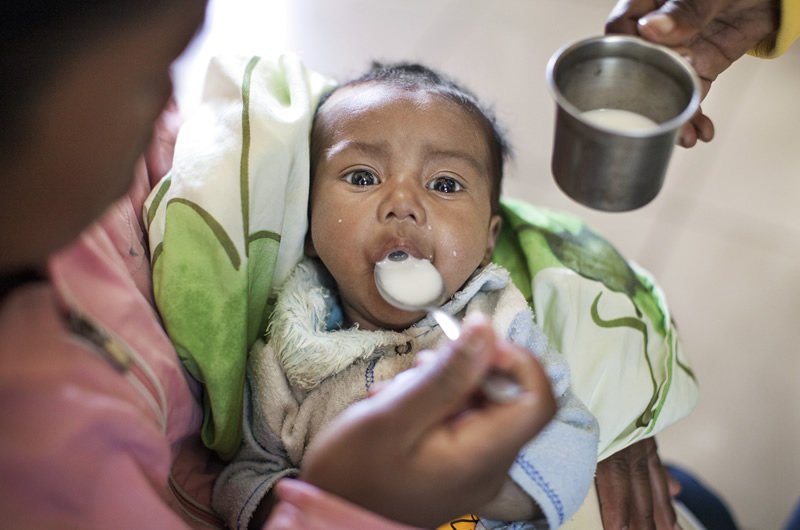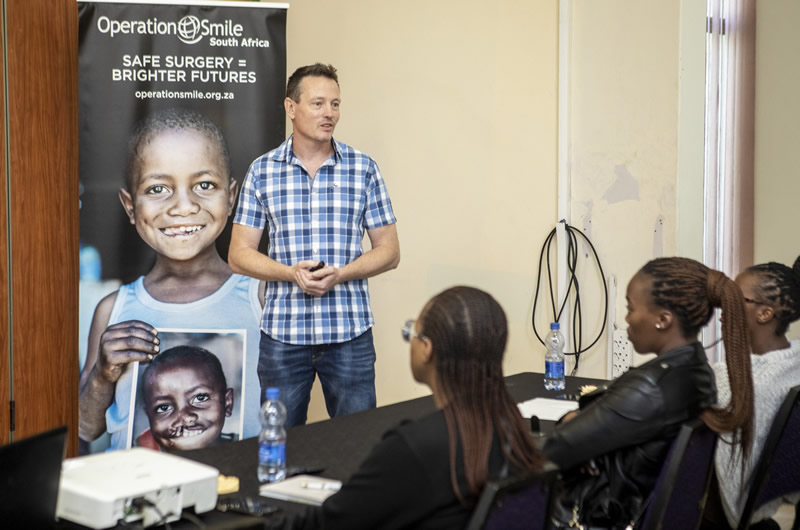Dr Marius van der Walt addresses delegates at the dentistry workshop in Mthatha.
Around 25 delegates, mostly locally based Eastern Cape government employed dentists, and dental technicians attended our recent training workshop in Mthatha.
Led by Dr Marius van der Walt, a volunteer dentist with Operation Smile, the workshop aimed to highlight the role of dentistry throughout the life of a cleft lip and palate patient, from birth to old age.
Obturator Manufacture
Delegates received hands-on training to master the technique of obturator and speech appliance manufacturing for adult patients with a cleft palate.
This included patient selection, impression taking, wire bending and resources needed. Using a cast model replication of a cleft palate patient, each attendee had the opportunity to manufacture their own obturator, which they took home with them.
Obturator and speech appliances are especially beneficial to adult cleft palate patients, who for various reasons are unable to undergo surgery. Used in conjunction with regular speech therapy, these devices enhance the patient’s quality of life by improving their speech.
Speech therapy training
Speech therapy was the focus of a second workshop which also took place during the surgical programme in Mthatha.
Three speech-language therapists working in Eastern Cape hospitals – namely Musawenkosi Sithole from NMAH, Maleshoane Maleka from St Elizabeth’s Hospital, and Sarah Wilkens from Madwaleni Hospita – attended. In addition, we had a delegate from Gauteng, Frances Egan, and three fourth-year students from the University of Fort Hare.
Training was also provided on speech errors, and techniques for correcting them.
Cup feeding for babies born with cleft palates
Delegates also learned the techniques of feeding babies with cleft palates. Specialised bottles, which are the most common method in high-income countries, are extremely expensive and hard to find in South Africa. Keeping them clean is also a challenge.
In contrast, breastfeeding, or feeding of expressed breastmilk from a cup, is not only healthier for the baby, but has the advantage of being virtually free and much more hygienic.
Building local capacity
One of the key goals of Operation Smile worldwide is to create opportunities for local doctors, dentists and therapists to gain the specialised knowledge they need to help children and adults born with cleft conditions in their communities, as part of our commitment to strengthening local health systems.

Spoon feeding expressed breast milk.
